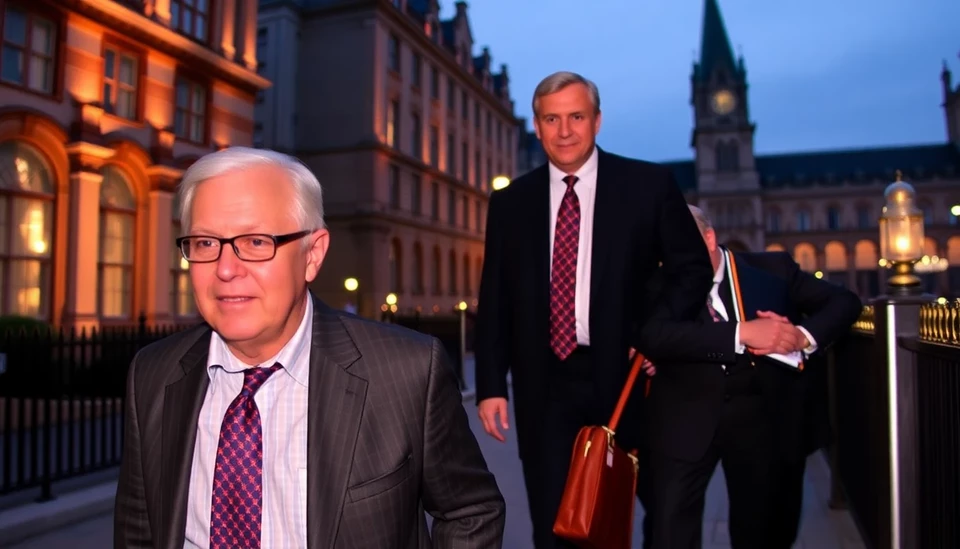
In a pivotal move reflecting the current geopolitical landscape, the United Kingdom government announced adjustments to its electric vehicle (EV) sales mandate, a decision primarily influenced by the potential ramifications of tariff measures imposed by former President Donald Trump. This development comes as the UK seeks to navigate complex trade relations while promoting the adoption of sustainable transportation solutions.
Prime Minister Rishi Sunak's administration has been under increasing pressure to reconsider ambitious emissions targets amid concerns over the competitiveness of the British automotive sector. The adjustments to the EV sales mandate were strategically timed as the country gears up for a critical election year. With rising costs and affordability issues becoming prominent in public discourse, Labour leader Keir Starmer has intensified calls for a reassessment of current policies, leading to the government’s reconsideration of its stance.
The previous mandate required that by 2030, all new cars sold in the UK be zero-emission vehicles, a goal firmly aligned with broader climate objectives. However, with ongoing global trade tensions and fears surrounding tariffs that could arise from potential future policies in the United States, the UK government deemed it necessary to recalibrate these targets in favor of a more gradual transition. Concerns were raised that the strict adherence to the mandate could hinder the UK auto industry’s ability to compete on an international scale, especially if tariffs were to increase the cost of imported components crucial for EV manufacturing.
The adjustments announced include a phased approach to the sales mandate, allowing for incremental increases in zero-emission vehicle sales rather than an abrupt shift. This policy shift is expected to provide manufacturers with the needed flexibility to adapt production lines and manage costs effectively, thus preserving jobs and stabilizing the market during uncertain economic times.
Furthermore, the UK government highlighted the importance of ensuring that the transition to electric vehicles does not disproportionately affect consumers, especially lower-income families. The need to balance environmental goals with economic realities has become increasingly evident, and the revised mandate aims to reflect this balance.
In a statement, Prime Minister Sunak noted, "We remain committed to our environmental objectives; however, we must navigate the challenges posed by evolving global trade dynamics carefully. Our goal is to foster a competitive automotive sector while still making significant strides toward our climate targets."
As the political landscape continues to evolve, the interplay between policy and global economic factors underscores the UK's pragmatic approach to the green energy transition. With upcoming elections looming, both the Conservative and Labour parties will likely focus on their environmental policies, seeking to appeal to a public increasingly concerned about both sustainability and economic stability.
This decision by the UK government represents a notable pivot in the ongoing dialogue regarding electric vehicles and the broader implications of international trade policy. Stakeholders within the automotive industry, environmental organizations, and the general public will be watching closely to see how these changes will impact the future of electric vehicles in the UK.
As the world continues to grapple with climate change and economic uncertainty, the balance between aggressive environmental policies and economic viability remains a contentious issue. The UK's latest move could serve as a critical case study for other nations evaluating their own paths toward sustainable transportation amidst global trade pressures.
#UK #ElectricVehicles #EV #ClimatePolicy #TradeTariffs #GreenEnergy #Sustainability
Author: John Harris




